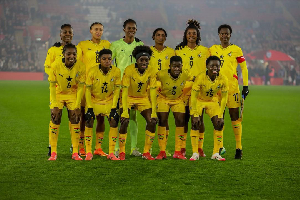Since time immemorial, there has been a practice among Ghanaians - consuming the combination of malt drink and milk as a blood tonic or blood booster.
Interestingly, this mixture is even given to people after partaking in blood donation exercises to supposedly replenish their lost blood. Does malt and milk mixture really boost one's blood levels? Absolutely not! It is a myth, a lie based on suppositions and pseudo-science. There is no scientific or nutritional profile evidence whatsoever to buttress this widely believed claim. I say this as a Food Scientist and here is my critique:
First, we need to understand what makes up blood, how blood is produced by the body (bio-synthesized), and then make comparative check with malt and milk to confirm if they really contain the biomolecules (nutrients) needed for the formation of blood.
Basically, blood is a tissue made up of four major components: plasma, platelets, white blood cells and red blood cells. In the production of blood by the body, the most important nutrient required is iron (note that down). From research, about 70% of the body's iron is amassed in the red blood cells of blood known as haemoglobin and in the muscle, it is called myoglobin. Since iron is required for synthesis of haemoglobin which is solely responsible for the oxygen transfer in blood from the lungs to the body tissues, the inference is that the human body needs iron for oxygen transport.
The body itself has about 25% of iron stored as ferritin and when iron intake is chronically low, it gets depleted and there is decreasing haemoglobin levels - a medical condition known as anaemia. This is when blood tonics and foods rich in iron are recommended to boost blood formation. For any drug, concoction or food to be claimed as "blood tonic" or "blood-booster", it definitely needs to contain a substantial amount of iron. (Keep this in mind).
From extensive food compositional studies, the food commodities which are good sources of iron include shellfishes (clams, oyster, mussels, etc.), liver and organ meats (brebo), spinach, legumes, red meat such as beef, cocoyam leaves (kontomire), turkey berries (Kwahu nsusua), quinoa and turkey.
What then are malt and milk composed of? Do they in any way contain iron which is needed for blood formation? Let's find out from the nutritional label of typical malt drink and evaporated milk.
The nutritional label of this malt drink (Malta Guinness), representative of all other malt drinks, shows that it is composed of about 14% carbohydrates (simple sugars), 0.4% protein and 0.004% vitamins; the main composition being water - about 85.6% Malt drink doesn't contain iron! Even if it does, the amount would be negligible. We have established one fact now. What about milk?
As indicated on the nutritional label of this milk product (Peak Milk), it basically contains fat, carbohydrate, protein, cholesterol, vitamins, calcium, phosphorous and magnesium. Obviously, the mineral constituents of milk doesn't include iron.
Remember the earlier stated principle that "For any drug, concoction or food to be claimed as "blood tonic" or "blood-booster", it definitely needs to contain a substantial amount of iron"? If that is the case, then the mixture of malt drink and milk definitely cannot serve as blood tonic/ booster since it lacks the vital nutrient for blood formation - iron!
You will then ask why you are given malt and milk after donating blood. The only logical reason is that it can provide you with some energy (as it contains carbohydrate, fat and proteins need for energy generation). It cannot increase your blood level as believed. Neither can the combination of coca-cola and tomato paste. 100 grams of tomato paste contains merely 2.9 milligrams of iron, whereas 100 grams of coca-cola contains just 0.11 milligrams of iron.
Rather than spend your precious money on these mixtures with the intent of boosting your blood levels, it would be more prudent to consume these iron-rich foods which are even cheaper: cocoyam leaves (kontomire), turkey berries (Kwahu Nsusua), liver and organ meats (brebo), legumes and pulses.
Opinions of Sunday, 31 May 2020
Columnist: Francis Aheto















